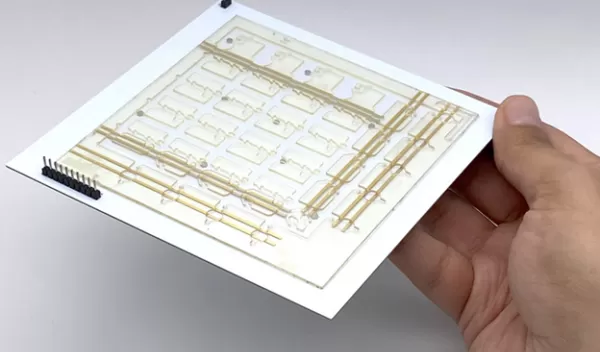
Hand-held diagnostic lab offers point-of-care solution for future pandemics
Using swarms of pinhead-sized magnets inside a hand-held, all-in-one lab kit, University of California, Los Angeles researchers have developed a technology that could significantly increase the speed and volume of disease testing, while reducing the costs and usage of scarce supplies.
The automated tests can be easily manufactured, deployed and performed at a doctor's office, health clinic or at mass testing sites in airports and schools at the onset of any major infectious disease. The research team was motivated by the lack of equitable access to testing during the early months of the COVID-19 pandemic when only a handful of clinical laboratories were authorized to run tests. The technology breakthrough could help authorities better prepare for future pandemics by decentralizing testing and maximizing the use of resources.
Dino Di Carlo and Sam Emaminejad co-authored the study, which was published in Nature. The U.S. National Science Foundation-supported paper outlined how the lab kit works and included findings from a clinical study with test samples from individuals who experienced COVID-19 symptoms. More than 100 test results using the lab kit were compared to the same samples tested for COVID-19 using polymerase chain reaction-based molecular diagnostics.
"Our hand-held lab technology could help overcome some of the barriers of scarcity and access to tests, especially early in a pandemic, when it is most crucial to control disease spread," said Emaminejad. "And beyond its potential to address issues of short supplies and high demand, it could be broadly adapted to test for many types of diseases in field and with lab-grade quality."
Using a circuit board that controls a set of movable, 1-millimeter-sized magnetic discs known as "ferrobots" to transport samples through the diagnostic workflow of a nucleic acid amplification test, the researchers' ultra-sensitive lab kit was able to detect the presence of genetic material from a virus — in this case, SARS-CoV-2, which causes COVID-19. The steps to separate, sort, mix and amplify testing samples are all automated and performed at a miniaturized level inside the kit.
